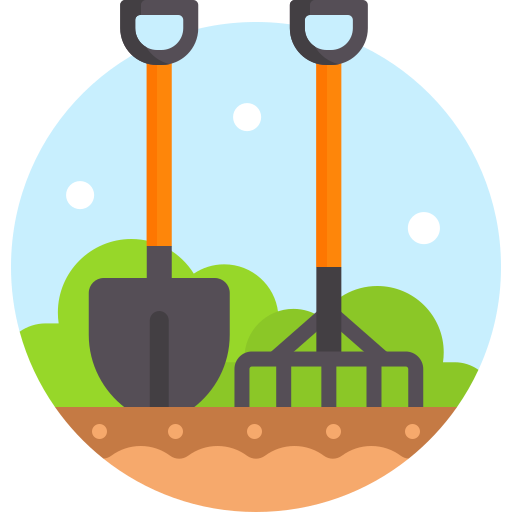In all airports that I’ve been through (all in Europe), the scanners for people + their carry-on luggage are from the customs agency, so from the government. They won’t check or enforce any airline weight limits there. The airline may still ask to check the weight of carry-on luggage at the gate, but I’ve never seen it as an automated process, only as spot checks.
- 5 Posts
- 558 Comments

 251·2 days ago
251·2 days agoFrom the study summary: We combine birth record data from over 2.6 million infants across 38 countries in the Demographic and Health Surveys (DHS) with reconstructed historical data from annual investor reports on the timing of Nestlé entrance into infant formula country markets. Consistent with the hypothesis that formula mixed with unclean water could act as a disease vector, we find that infant mortality increased in households with unclean water sources by 19.4 per thousand births following Nestlé market entrance, but had no effect among other households. This rate is equivalent to a 27% increase in mortality in the population using unclean water and amounts to about 212,000 excess deaths per year at the peak of the Nestlé controversy in 1981. https://haas.berkeley.edu/ibsi/research/mortality-from-nestles-marketing-of-infant-formula-in-low-and-middle-income-countries/
Seems pretty damning to me, but will it have any consequences for Nestlé or any of the big honchos at Nestlé from that time? Probably not as usual, since corporations are apparently allowed to kill people as long as they do it in an obfuscated way.

 112·4 days ago
112·4 days agoI’m not against using photos in support of journalism, they absolutely make a difference, but photography alone is not journalism. Without a story, it’s just photography. Your examples seem to have all been part of a bigger story.
My opinion is basically reflected in that quote you used: “a key part in telling the story of”. While it was a key part, the photo alone was not the entire story.

 791·5 days ago
791·5 days agoWhat a lazy hands-off way of reporting. What happened to walking in the crowd, interviewing protesters, interviewing innoconous passers-by, interviewing people that are hindered, …, and also getting a reaction/quote from whomever/whatever is being protested against? Instead they apparently want to just publish some photos. That’s not journalism, that’s photography.

 2·5 days ago
2·5 days agoIs it possible that you’re thinking of slaughterhouse biomass? I was talking about the biomass of concurrently alive animals and I would expect just milk cows to outweigh chickens in a lot of countries.
My guesstimations are for Flanders, the northern half of Belgium. There’s also a lot of chickens, but pigs + cattle weigh more per animal + live longer, which is why I expect them to weigh significantly more than the chickens at any given time. It’s not sustainable in any way, I read once that about 90% of the livestock food is imported, 2/3rd of that from outside Europe.

 3·5 days ago
3·5 days agoThis is just mammals, so most water creatures aren’t being counted, which is going to be the majority of all animal biomass. So those waters you mention are mostly being ignored, but for living on land and for explaining land usage, just comparing the mammals is more informative.
I suspect that for my country, if you’d add human + pig + cattle biomass together, that you’d end up with about 99% of the biomass of all land animals. The remaining 1% is probably going to be mostly chickens. Other livestock, pets or wild animals will be lost in the rounding error. It’s only a suspicion though, I can’t find actual numbers straight away.
Edit: I did find some numbers after all: humans + pigs + cattle are 99.9% of the mammal biomass in my country. It’s actually worse than I thought it was going to be. I can’t find a number for chickens + birds, just the mammals.

 18·6 days ago
18·6 days agoWild mammals only make up 4% of the total mammal biomass, and that 4% includes whales. We’re just not leaving a lot of room for nature anymore.
That reasoning could explain Italy and Spain, but Norway is an early adopter of EVs. The early adopter really, they have far more EVs per capita than any other country.
Edit: but I do agree that without absolute numbers or relative market share numbers, we only know half the story. All ev sales could be massively up compared to last year, while Tesla’s only remained stable.

 4·10 days ago
4·10 days agoYou can find several of those companies in the list of acquisitions by ebay: https://en.m.wikipedia.org/wiki/List_of_acquisitions_by_eBay
It seems like mba’s are in control at ebay: first they enshittified their own product because they didn’t understand how it was used, and instead of fixing their own enshittified product, they instead started buying their competition and then commenced enshittifying those.

 3·12 days ago
3·12 days agoI have a few decades of experience of walking (often barefoot) onto flowering lawns/meadows and I’ve never been stung by a bee. Unless you disturb their nest, which won’t be in the lawn, bees will do their best to avoid you. Well, European honey bees are harmless at least. Bumblebees are harmless as well. I have been stung a few times by wasps, but those incidents were not lawn related in any way.
If the lawn is more grown out and I’ve walked through it, then I always worry about ticks and I check my legs afterwards, because of Lyme disease.

 4·13 days ago
4·13 days agoThe Department of Government Efficiency (DOGE)[b] is an initiative of the second Trump administration tasked with cutting federal spending which it characterizes as “waste, fraud, and abuse”.[8] It emerged from discussions between Donald Trump and Elon Musk, and was established by executive order on January 20, 2025. DOGE’s actions have included accessing government data systems; organizing mass layoffs of federal workers; and cutting climate change initiatives, scientific research, and DEI (diversity, equity, and inclusion) programs.
https://en.m.wikipedia.org/wiki/Department_of_Government_Efficiency
Yeah, smartphones are a menace as well in traffic, especially when combined with someone as oblivious as in your example :). The government(s) in my country has had several police + information campaigns against smartphone use since a few years. There’s now also a fine of 175 euro + loss of driver’s license for 15 days for using the smartphone while driving in traffic. And waiting in traffic, still counts as driving. If used for navigation, then the destination has to be put in before starting to drive & the smartphone has to be in a holder or connected to the infotainment system.
This heavier punishment is pretty recent and the chance of being caught seems low, so there’s still often people using smartphones inappropriately. Last one I saw this week was an oblivious teenager on a bicycle. It’ll be interesting to see if there’s been a noticable change in a few years.
https://m.youtube.com/watch?v=hwGd3QWgTLs&pp=0gcJCdgAo7VqN5tD
For contrast: a video of a more congested street in Paris 17 years ago. The situations aren’t completely comparable: bigger emergency vehicle, smaller other vehicles, smaller street with less options to get out of the way, … One other major difference and the reason I’m posting this, is that 30 seconds into the video, you can see that most drivers have moved to the sides of the road AHEAD of the firetruck and that they are holding still while waiting on the firetruck to pass them. The street + path are less than ideal and there isn’t really enough room, so the truck is still not going very fast, but it’s at least able to keep moving. By moving to the sides, the drivers also blocked in that smaller firetruck that was coming from the side street, so that’s going to cause some confusement after the big one has passed.
The reason that that NYC ambulance is completely stuck in traffic, isn’t because of space, because there is plenty compared to that Parisian street, but it’s the drivers who are not creating a path. It’s not an infrastructure problem, it’s something that can be taught + encouraged if there is a political will to make a change.
Yeah, absolutely. Americans making excuses as to why solutions that work in other countries, would not work in the USA, are a scourge on your society. Your lives could be so much better if you lot stopped falling for that American exceptionalism propaganda and stopped inventing reasons to not do anything about known problems. And now that you’ve turned into a banana republic, I’m done being polite about it.
As if the usa is the only country in the world with congested rush hour traffic. I’ve been in streets that were way more tightly packed + chaotic than this and people would still clear a path for vehicles with sirens. The emergency vehicle would only be able to go 20 to 30 kmh without a motorcycle escort, but that’s still significantly faster than what we’re seeing here.
What we’re seeing in this video, is that (some) vehicles that are directly in front of the ambulance move out of the way, but vehicles that are a tiny bit further ahead, don’t even try. If a vehicle that is directly in front of the ambulance can move out of the way, then a vehicle that is 30 places ahead, is also able to move out of the way, but they don’t even try … What should happen is that as soon as drivers hear a siren, they should start looking for where it’s coming from and then clear a path, and drivers should also especially not be driving into the path that others are clearing. Instead it seems like these drivers wait till the siren is right behind them and only then some start to move out of the way.
Looking for excuses in American exceptionalism reads like a case of “we’ve tried nothing and we’re all out of ideas”. This particular problem is something that can be easily improved upon by a public awareness campaign and some light fines for those that keep obstructing after the campaign has been running for some time. But what’s obviously even easier than that, is finding an excuse to continue doing nothing about the problem.
 5·15 days ago
5·15 days agoFollow the Money is usually the right answer. If an essential economic sector (like people transport) is made less efficient, then there is going to be more revenue for private companies and thus more private profits to be made. This less efficient sector will be a worse outcome for most people in society, but it’s going to increase profits for the shareholders of those companies. And in the USA, it’s those shareholders that matter most to the politicians.
The same explanation works for USA healthcare, USA ehabilitation of criminals, USA telecom services, …
Bart De Wever was never the chairman of Vlaams Blok. He’s never been a member of Vlaams Blok/Vlaams Belang, which makes it kinda hard for him to have ever been their party leader.

 9·26 days ago
9·26 days agoDenmark can pay the USA in ozempic pills.

 13·29 days ago
13·29 days agoI live in a country where every citizen automatically receives a government id at the age of 12. We have to bring that id when we go to vote, but even if I were to lose the card at the worst possible time, there are contingency measures to allow me to still cast my vote. The idea is to get as many people as possible to vote, the id card greatly facilitates this process, but it’s not used as a tool to keep people from voting.
In the usa (and the uk, and maybe other countries as well), citizens are not automatically granted an id card. Instead they have to acquire + maintain some accepted means of identifying themselves if they want to vote. And there some Americans saw a great opportunity: what if they made it so that certain minority groups would have a statistically harder time acquiring and maintaining identification that was deemed acceptable? And what if the state government could arbitrarily purge voter lists based on data mined information? The voter id requirements are used not only for facilitating the voting process, but also for suppressing undesired votes.
If you want some examples of usa voter suppression: https://en.m.wikipedia.org/wiki/Voter_suppression_in_the_United_States











Access to safe drinking water was a known issue in loads of places at that time, not just in developing countries. My dad grew up in the 1950s and still drank table beer in his elementary school. There’s no way that a 1960s food scientist would have been so incompetent, to not know that not everyone had access to clean drinking water. We can also know that they weren’t acting in this way out of ignorance, because they continued with their unethical practices for years after the consequences became public knowledge. They only stopped because of the world wide consumer boycott. And only a few years after they promised to do better, they started rule dodging again. They simply don’t care about people, only profits matter.